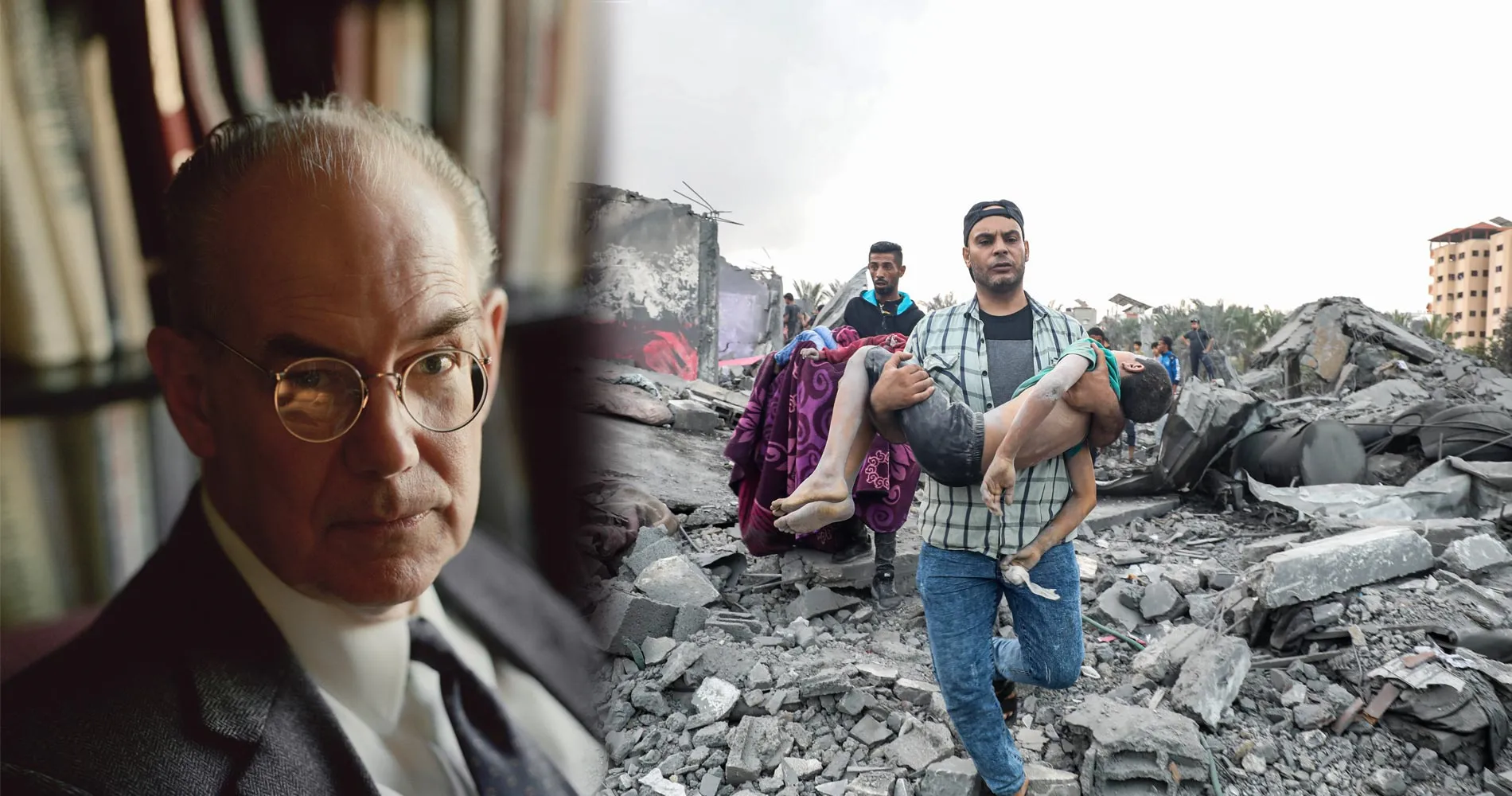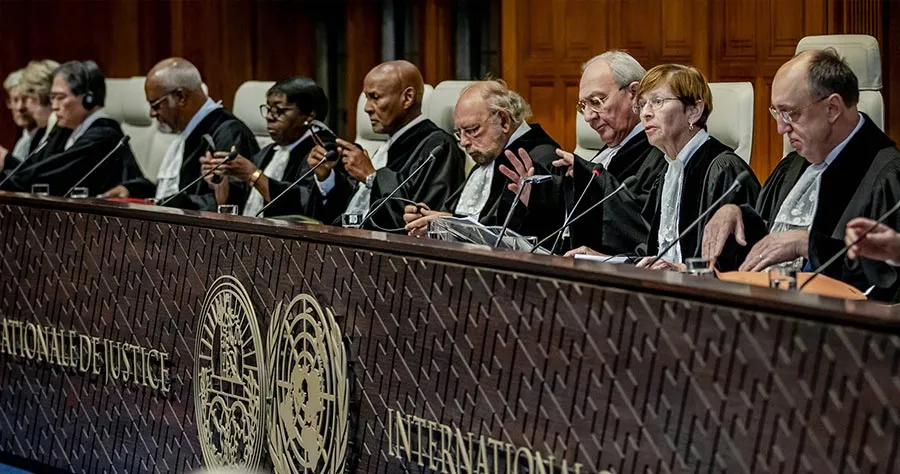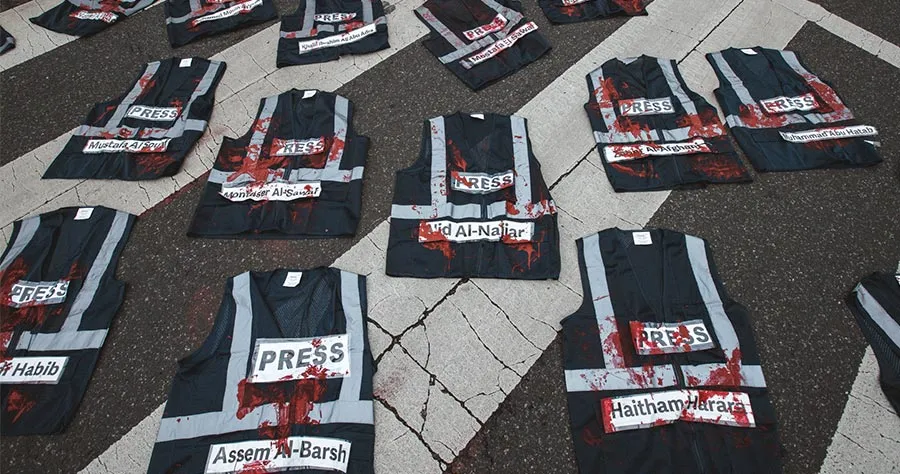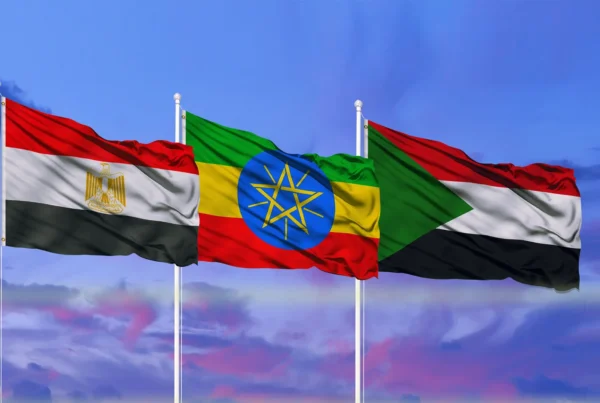Ambassador Salah Abdel Shafi, Ambassador of Palestine to Austria, Slovenia and Croatia, gave iGlobenews an exclusive one-hour interview. He discussed the situation in Gaza, the future of Palestine, the ongoing war, the possibility of peace and the real danger of escalation. He stressed the dire humanitarian situation facing the Palestinians in Gaza. He raised key questions such as: will the West commit to international law, or will Israel’s western allies continue to shield it from prosecution by the ICJ and ICC? International law and international humanitarian law (IHL) is not a menu one can choose from–it applies to everyone or no one. Only a two-state solution backed by the UN and all UNSC permanent members can guarantee a lasting peace in the Middle East.
Diana Mautner Markhof
28 May 2024
Arabic version | Chinese version | French version | German version | Russian version
H.E. Ambassador Salah Abdel Shafi, Ambassador of Palestine to Austria, Slovenia and Croatia gave iGlobenews an exclusive interview. He emphasized that all conflicts in the Middle East could be solved by solving the Israel Palestine issue. The solution is clear: a two-state solution which is backed by the entire international community. “The territories that Israel occupied in 1967 should become the territories of the future Palestinian state. Jerusalem should be the capital of two states” in which settlements are illegal under international law.
Ireland, Spain, and Norway are leading the way for western nations. “If you support a two-state solution, you should recognize the two states, not just one”. Norway, Ireland and Spain are set to officially recognize the State of Palestine effective on 28 May 2024.
Ambassador Abdel Shafi is also the Permanent Observer of the State of Palestine to the UN and international organizations based in Vienna. He calls on the international community to hold Netanyahu accountable. “Even if Benjamin Netanyahu stops the war today, he should be held accountable. This issue is not just about stopping the war but holding people accountable”.
“The world has many instruments at its disposal to pressure Israel to stop this genocidal war” which is unfolding in real time. CNN and other main stream media have reported on Israel’s secret concentration camps where thousands of Palestinian detainees are held without rights, tortured and maimed. Mass graves near hospitals and checkpoints have been discovered with hundreds of bodies, including women, children and the elderly, some of whom had their hands tied behind their backs. “People are digging with their bare hands to find survivors”. Israel does not want this information to get out and is blocking access of international journalists to Gaza. Israel has killed over 140 Palestinian journalists.
“Even the most horrible event on October 7th does not justify what is happening today in Gaza” –the Ambassador condemns all killing of innocent civilians both Israeli and Palestinian. In Gaza at least 35 903 people have been killed and 80 420 have been wounded since October 7. The death toll in Israel from Hamas’ attack stands at 1139 with dozens still held captive. Yet the actual Palestinian death toll is much higher, as many Palestinians have simply “disappeared”. Many innocent civilians have been buried underneath the rubble and bulldozed in their homes.
What is unfolding at the ICJ and the ICC is a “test of whether there is a rule-based international system or a system based on power”. The world is witnessing “the collapse of a rule-based international system. International law is not a menu that you can choose from; it is either applicable everywhere or not at all”.
On 20 May 2024, the ICC Chief Prosecutor, Karim Khan applied for arrest warrants to be issued against three Hamas leaders and against Israeli Prime Minister Benjamin Netanyahu and his defense minister for war crimes and crimes against humanity. The State of Palestine is a member of the ICC. The Ambassador emphasized that Palestine will respect any decision the ICC will render, also in respect to Hamas.
While Palestinians are welcoming the announcement of the ICC, Austria’s Chancellor Karl Nehammer and an unnamed spokesperson for Germany’s Foreign Ministry were quick to side with Israel. “These politicians should be reminded that Hitler was democratically elected”, the Ambassador noted. Since the interview, Steffen Hebestreit, German Chancellor Olaf Scholz’s spokesperson, confirmed that Germany would “of course” abide by an ICC arrest order for Israeli officials, if approved.
Elected officials are not immune from accountability. No country should be allowed to act with impunity. International law and IHL should apply to all. As the Ambassador emphasized, “Today, nobody can claim they did not know, as was claimed by the silent [witnesses] of the Holocaust”.
For the Palestinian Ambassador, Chief Prosecutor Kahn failed to mention: 1) the right of people under occupation to resist occupation; 2) the grounds for additional arrest warrants against the Chief of Staff of the Israeli army and the commanders of various IDF units for committing genocide and war crimes; and 3) condemning acts of settler violence and killing of innocent Palestinians in the West Bank – also a war crime under the Rome Statue. Nevertheless, the Ambassador emphasized “we highly respect the ruling of the Court [ICC] despite all these reservations”.
As the possibility of escalation looms large, with Egypt’s threat to suspend the Camp David Accords, “it’s becoming more and more obvious that the leaders of Israel, particularly Benjamin Netanyahu, are not interested in de-escalation”. An end to the war on Gaza would be the end of Netanyahu’s political career and the start of his criminal prosecution within Israel. That being the case, Netanyahu wants “an escalation with not only Egypt but also with Lebanon and Iran”. Ambassador Abdel Shafi concludes: “It is crucial for the security of the entire region that Netanyahu’s actions be stopped and not encouraged. Unfortunately, we see certain countries still very loyal to the Israeli position”.
More Articles on Gaza:
On 25 March 2024, UN Special Rapporteur on Occupied Palestinian Territories, Francesca Albanese, issued a report titled “Anatomy of a Genocide,” (https://www.ohchr.org/sites/default/files/documents/hrbodies/hrcouncil/sessions-regular/session55/advance-versions/a-hrc-55-73-auv.pdf). She concluded that there are reasonable grounds to believe that the threshold indicating the commission of the crime of genocide has been met. Israel’s actions in Gaza are an “escalatory stage of a long-standing settler colonial process of erasure”.
Ambassador Abdel Shafi totally agrees with Albanese’s list of recommendations, which include an arms embargo on Israel, support for South Africa’s ICJ case, a thorough independent investigation including ICC involvement, reparations by Israel and those countries supporting Israel, a special UN committee against apartheid, and UN troops and personnel on the ground to protect the Palestinians.
According to UN figures, the entire population of Gaza is at risk of famine, with acute risk affecting probably around one million people. This is an extremely serious situation. Before the war, 500 trucks per day used to enter Gaza, bringing essential supplies. Now, there are days with zero trucks entering Gaza. No amount of international pressure, including from the Biden administration, has changed this. The recent ICJ ruling has also not changed Israel’s stance. Today, Israel is at best allowing around 40 to 50 trucks per day. This is the proverbial “drop in the ocean”.
Israel has been constantly attacking international organizations, not only Palestinian infrastructure. “They have attacked our schools where people sought refuge … They have attacked aid workers”. Moreover, “Israel could not substantiate any claims that 12 UNRWA workers participated in the October 7th attacks”. An independent investigation by a committee headed by the former French Foreign Minister Catherine Colonna and supported by three Nordic research institutes found no proof of UNRWA cooperating with Hamas.
When asked how this war could end, Ambassador Abdel Shafi is at a loss for words. “Personally, I was hoping the court [ICJ] would order a total stop to the war”. Yet, when looking at the hundreds of thousands of young people who have taken to the streets in the United States and Europe, he remains hopeful. “Gaza has become a symbol of injustice in the world”. While the world’s western leaders are worried about power politics, this young generation is worried about its future and sees injustice everywhere, especially in Gaza.
As long as “Israel disregard[s] the ICJ ruling”, the state of Israel will remain “a pariah state, violating numerous United Nations General Assembly and Security Council resolutions”. And, as long as the US blocks Palestine’s full membership at the UN, “the US will become increasingly isolated on the world stage”.
Regarding the peace negotiations, the Ambassador is not “overly optimistic”. Israel rejected the peace deal put forward by the US which Hamas had accepted. If the US wants peace, it could wield “significant influence”. “If we leave things solely to Israel, nothing will happen”.
The Ambassador points to the Association Agreement Israel has concluded with the European Union, which includes the respect for international law and human rights. The Ambassador calls on the EU, Israel’s largest trading partner, to suspend this agreement. “Israel has destroyed hospitals, there is no water, no electricity, no roads, nothing. Gaza is unlivable today and still some countries justify what Israel is doing. It’s incomprehensible that in the 21st century, responsible politicians are still seeking justifications for Israel’s actions”.
Abdel Shafi agrees with the outcome of the 33rd Arab Summit in Bahrain where leaders of the Arab countries and Iran called for “the deployment of international protection and peacekeeping forces of the United Nations in the occupied Palestinian territories until the two-state solution is implemented”, and for an international peace conference.
He points to the existing asymmetry of previous negotiations with Israel. “We are dealing with an occupying power that, by virtue of its military power, dictates things on the ground. When Israel negotiated with us [in the past], they created the impression that there is peace. However, they continued with the policy of land confiscation and the establishment of illegal Jewish colonies on our territory. After 20 years of negotiations, we woke up one day and asked: Do we have our state? No, it’s already occupied.” Only a peace conference under the auspices of the United Nations and with support of all five permanent UNSC members will solve this conflict.



 Professor John Mearsheimer on Genocide in Gaza
Professor John Mearsheimer on Genocide in Gaza Ugandan ICJ Pro-Israel Vote: A Discriminate Dispensation of Justice?
Ugandan ICJ Pro-Israel Vote: A Discriminate Dispensation of Justice? Silencing Truth: Press Freedom Threatened in Gaza Conflict
Silencing Truth: Press Freedom Threatened in Gaza Conflict



